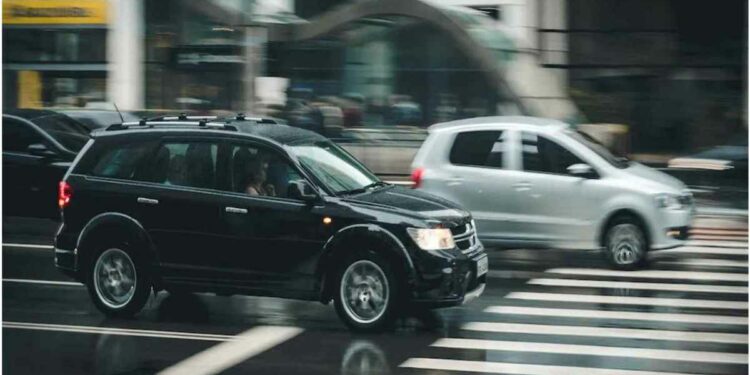If you’ve been in a car accident, you may very well be imagining the worst-case scenario about the impact that it would have on your car insurance premiums.
If you have an accident, your car insurance premiums increase by 15% on average. However, not every accident is the same, and in certain circumstances, your rates may not rise at all.
Keep reading to learn what you can do if your insurer increases your rates, as well as how car insurance companies interpret incidents and how they may affect your premiums.
Table of Contents
What to Do if an Accident Causes Your Car Insurance Rates to Go Up?
Accidents that result in a rate rise from your insurer won’t take effect until your policy is up for renewal. Yet, depending on the circumstances, your rate may remain high for a long time. After you have your new rate, it is in your best interest to compare prices to see if you can find more affordable insurance elsewhere.
Naturally, other insurers will do the same thing when quoting you a rate; they’ll look at your driving record and claims history. But it’s important to remember that various insurance providers use different criteria when determining rates.
Depending on your location and personal circumstances, one car insurance provider may be better than another. To ease the process of finding suitable coverage, it’s best to consult with a local broker. For example, if you live in Kitchener, Ontario, make sure you look for a broker to help you find the best rates for car insurance in Kitchener hassle-free. In addition, compare quotes and review other features they offer.
It is Important Who is at Fault
Your risk as a driver is only one of several factors used to calculate your car insurance premium. Your insurance costs might go up if you get into an accident and are found to be at fault, as insurers often interpret accidents as evidence of reckless driving.
However, if you are not at fault for the accident, your insurance premium may not rise at all. Yet, there is no certainty. Your repair costs will probably be covered by the negligent party’s insurance, but your rates may go up anyway. That’s because insurance companies will see you as more of a danger, the more accidents you’ve been in, regardless of who was to blame.
How much insurance the other motorist has is also a factor. Uninsured/underinsured motorist coverage kicks in when the at-fault driver doesn’t have enough insurance to pay your damages. In such a case, your insurance provider has the option of raising your rate.
Claim Amounts May Also Make a Difference
Any increase in your premiums will be partly determined by the size of the claim you make, regardless of who was at fault in the accident. If you cause serious injury or property damage to another person in an accident, your insurance premiums may go up more than if you just struck a tree and need money to fix your car.
It’s also worth noting that insurance companies use various formulas to determine premium increases, so a $5,000 claim with one company can have a different effect on premiums than the same claim with another company.
Your Driving History Also Plays a Role
Insurance companies will look at more than just your most recent collision when determining your rates. For instance, if your most recent accident is among the many in the prior several years, you may experience a larger rise in your premiums.
Insurance companies may look at traffic offenses like speeding and reckless driving to gauge a driver’s overall risk and set rates accordingly. In addition, the specifics of your accident’s setup will be factored in. If you were driving under the influence and caused an accident, for instance, your insurance company may raise your rates or refuse to renew your policy when the existing one expires.
How to Reduce Your Rates in the Future
The effects of higher premiums are likely to last for a few years, regardless of whether you switch insurance providers and find a lower rate. You can’t undo what’s done, but there are other ways to attempt to lower your car insurance premiums:
- Decrease your coverage;
- Ask about discounts;
- Keep up safe driving practices;
- Boost your credit score;
- Obtain coverage depending on your use.
Results from these efforts may not become apparent right away. But over time, they will give you the possibility to save on car insurance regardless of which insurer you select.

Final Thoughts
While your car insurance premiums may not skyrocket due to one accident, there’s no reason to make matters worse by trying to hide an incident. Be honest with your insurer throughout the claim process, and you’ll likely be rewarded with some decent savings.



















